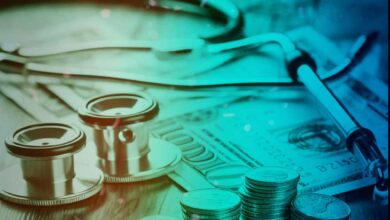The Role of Antibody Testing for SARS-CoV-2
Will recovered Covid-19 patients be spared from the Vaccine?
The antibody testing reveals the neutralizing antibodies that the human body creates to fight the coronavirus by examining its proteins, mainly the “S protein”.
These antibodies are significantly related to the immune responses of individuals who have recovered from the infection, as the body produces them to fight the infection, and this is similar to what happens in the body when a vaccine is taken, in which immunity is formed against the virus.
Serological tests measure the amount of antibodies or proteins present in the blood when the body is responding to a specific infection. It helps to better understand the virus and know how to respond to it, and provides an opportunity to track the spread of the virus and determine its extent.
Thus, the antibody testing plays a major role in the coronavirus pandemic because it can provide information about the spread of the virus among the population and the frequency of asymptomatic infection.
Do antibodies spare the recovered individual from getting the vaccine?
Many individuals who recovered from coronavirus ask this question after it has been proven that they have antibodies that protect them from getting infected again, at least in the short term. Does that spare them from getting vaccinated?
So far, there is no final answer to this question, especially since vaccination trials today are mostly carried out on those who have not yet been infected with the coronavirus. But some people encourage giving vaccines to this group at a later stage because immunity against the virus diminishes over time as the level of immunity from natural infection is variable, therefore, some people get a very strong immune response, while others have a very weak immune response. At first, the priority remains for those who have not yet been infected, as well as for the frontline workers that work hard to confront the virus. Some experts in this field say that receiving the vaccine in the presence of antibodies will not help increase the immune response against the coronavirus. The antibodies disappear from the body of the recovered individual and their effectiveness disappears after 8 months, so those who have recovered from the disease must undergo an antibody testing once every three months.
What are antibodies?
Antibodies are proteins produced by your immune system in response to an infection. Your immune system — which involves a complex network of cells, organs and tissues — identifies foreign substances in your body and helps fight infections and diseases. After infection with the COVID-19 virus, it can take two to three weeks to develop enough antibodies to be detected in an antibody test, so it’s important that you’re not tested too soon.
Antibodies may be detected in your blood for several months or more after you recover from COVID-19. Although these antibodies probably provide some immunity to the COVID-19 virus, there’s currently not enough evidence to know how long the antibodies last or to what extent past infection with the virus helps protect you from getting another infection. The IgM antibody is assembled first as the body actively fights the infection and the presence of this antibody may indicate a more recent infection. Then the IgG antibody is created, after the acute infection. IgG antibody has the potential to provide long-lasting immunity to a virus.
The level of IgM antibody begins to rise after 1 week after the initial infection, while the IgG appears later than IgM (usually in 14 days after infection) and can last for 6 months or even several years, which means that the IgG serves as an indicator of previous infection.
Antibodies circulate in your blood, hunting for antigens they recognize. When a familiar antigen is spotted, antibodies can stop it from entering or damaging your cells. Having enough of the right kinds of antibodies can often keep you from getting sick with the same virus more than once.
Most people who are infected with COVID-19 develop an immune response within the first few weeks after infection.















